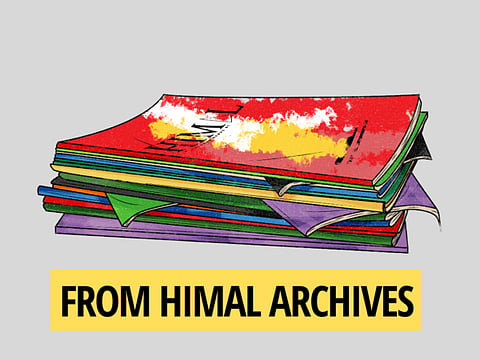Reportage
The visa war
Two 50-year-old siblings still play tit-for-tat.
For all of lnder Kumar Gujral´s overtures to Pakistan, it is still ludicrously difficult for Pakistanis to visit India, as Lahori journalist c found out. He concedes that it might be equally frustrating for Indians headed the other way.
On or about 12 August 1947, my grandparents and two young aunts went missing in the violence that struck Jalandhar in Punjab, India. My father, Divisional Engineer for the North Western Railway, and my doctor uncle were then both in Delhi.

